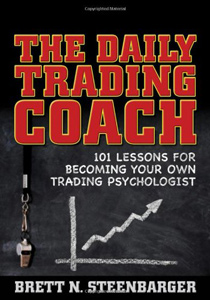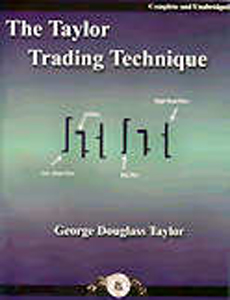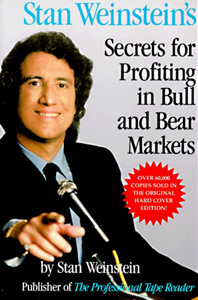Winners and Losers from the Interest Rate Rise
Further Reading
We look at who wins and loses from last weeks' interest rate rise.
Here's an article from the SMH about the property investors who bought in Sydney's property boom in late 2003 who are now facing negative equity. "Negative equity occurs when the price of a house falls far enough to wipe out the value of the home owner's deposit. If the house is sold, the borrower would still owe the lender money." The "scale of house price falls in Sydney was likely to affect highly geared investors who bought at the peak of the property boom more than owner occupiers planning to live in their home long-term."
How about a winner from an interest rate rise? We all know that the Aussie dollar appreciated - could be seen as a positive or a negative depending on which side of the fence you are sitting on and which industry you are concerned about. Anyway Macquarie pointed out that rising interest rates are actually beneficial for banks. Take note: the bank with the largest base of consumer deposits is Commonwealth Bank (CBA). This is because there is a lag between the interest rate rise that they impose on their borrowers and the actual increase of the interest paid in the deposits made by their customers. And by the way, Macquarie has an Outperform recommendation for CBA with a 12 month price target of $47.60.
Having the interest rate rise would definitely tighten households who have a mortgage to pay. This would of course limit discretionary spending so taking a wild guess that cafes, newsagents, take-away food and video libraries would be impacted by the move.
Car sales were down 3.5% in the first four months of 2006 so any rise in rates on car loans and car leases might not be the full 0.25%: dealers and their financiers might keep paying some margin simply to keep sales going. However, car sales in April appear to be have fallen a steepish 10% according to industry figures.
The stockmarket reacted the day after the rate rise, which was quite interesting. But take note if Rio Tinto (RIO) or BHP Billiton (BHP) runs strong in the coming months. It may weigh up as additional evidence for an interest rate rise.
Now, the Aussie dollar is up, so of course travel would probably be back on the boards for some Australian families. But with the stronger currency we should see a falling export competitiveness level. Job losses may not be too far down the track. We should also see imports becoming cheaper - watch Current Account Deficit (CAD), here we come!
- How to Trade Forex and Gold Options
- How to Trade the Gold Price and Profit!
- Forex Trading the EUR/USD Pair € EURO and $ US Dollar
- How to Trade Stock Market Indices S&P500
- How to Trade Crude Oil
- Forex Trading Psychology
- What Are Broker Recommendations?
- Free Tickets to Trading & Investing Seminar & Expo ($18) Brisbane 2013
- Stock Calc App
- All About Warrants
- Introduction to Exchange Traded Funds
- Introduction to Exchange Traded Funds: Features
- Introduction to Exchange Traded Funds: Domestic ETFs
- Introduction to Exchange Traded Funds: International ETFs
- Exchange Traded Commodities
- Australian Stock Scan
- Australian Online Share Trading
- List of Trading Books
- Interesting Thoughts about the Australian Dollar
- What's the Meaning of Hawkish?
- Do You Know How To Use the P/E Ratio
- Trading, Religion and Politics - Do They Have Anything in Common?
- Shares that are Volatile that Double and Half in the Short Term
- Telstra (TLS) T3
- Margin Call by E-mail
- The Cost of Holding a Position
- Lack of Disclosure: Compensation from ASX Listed Company
- Unrealistic Returns and Benchmarks
- CMC Markets Down
- Quality versus Quantity Forex Trading
- Woolworths 1H Sales $30.7bn up 3.2%
Date added 31-01-2013 - ASIC Fines CommBank's CommSec
Date added 25-09-2012 - Industry Super Network Calls to Ban High Frequency Trading (HFT)
Date added 22-09-2012 - NAB Launches Online Share Trading Platform
Date added 19-09-2012 - Reserve Bank of Australia Says 23 Countries Holding AUD
Date added 18-09-2012 - Australia Post Digital Mailbox
Date added 10-09-2012 - Winners and Losers of Trading for Week 2
Date added 16-01-2012 - 2012's First Week of the Best and Worst Traded Stocks
Date added 09-01-2012 - 2011's Last Best and Worst Traded Stocks
Date added 05-01-2012 - Best and Worst Pre-Christmas Traded Stocks
Date added 30-12-2011 - Trading Winners and Losers for Dec. 12-16
Date added 19-12-2011 - Best and Worst Traded Stocks for Dec. 5-9
Date added 13-12-2011 - Top 3 Best and Worst Traded Stocks
Date added 05-12-2011 - ASX Glitch Trading Halt
Date added 27-10-2011 - Worst Trade Stocks (and the Best)
Date added 06-08-2011
Top 150 Public Companies Listed on the Australian Stockmarket as at 29/05/2009
- BHP Billiton
- Westpac Banking Corporation (WBC)
- Commonwealth Bank of Australia (CBA)
- National Australia Bank (NAB)
- Telstra (TLS)
- ANZ
- News Corporation (NWS)
- Woolworths Limited(WOW)
- Woodside Petroleum Limited (WPL)
- Rio Tinto
- Westfield Group (WDC)
- Westfarmers Limited (WES)
- QBE Insurance
- CSL
- Newcrest Mining Limited (NCM)
- Origin Energy Limited (ORG)
- Santos Limited (STO)
- AMP Limited (AMP)
- Macquarie Group (MQG)
- Foster’s Group Limited (FGL)
Recommended Articles
Company Profiles
ASX GICS Sector Company List
- Automobile & Components
- Banks
- Capital Goods
- Commercial Services & Supplies
- Consumer Durables & Apparel
- Consumer Services
- Diversified Financials
- Energy
- Food & Staples Retailing
- Food Beverage & Tobacco
- Health Care Equipment & Services
- Insurance
- Materials
- Media
- Pharmaceuticals, Biotechnology & Life Sciences
- Real Estate
- Retailing
- Semiconductors & Semiconductor Equipment
- Software & Services
- Technology Hardware & Equipment
- Telecommunication Services
- Transportation
- Utilities




